An example of the ministry to refugees of the Evangelical Church of the Augsburg Confession in Slovakia.
While at home in Ukraine, we often hear statistics about women and children leaving Ukraine. People flee the country, trying to save their lives and the lives of their children.
We also read about neighboring states of Ukraine hosting refugees, creating conditions for them to wait out the war. Statistics speak of 6 million Ukrainians in the countries of the European Union, most of whom acquired refugee status, received support, and often found housing and work. More than half a million Ukrainian children went to educational institutions in other countries. I want to share, what the situation looks like in Slovakia in particular. While visiting Ukrainian refugees living there, we had an opportunity to meet with pastors of the Evangelical Church of the Augsburg Confession in Slovakia, which took an active part in the work of serving the neighbor.
Michal Findra, a pastor of the Evangelical Church in Poprad, told us, how the congregation used all its strength and resources to serve refugees from Ukraine. The office premises and the congregation building were turned into apartments for Ukrainians. Being a regional center and a developed city, Poprad was able to receive and support a significant number of Ukrainians. People settled in apartments and houses rented for them by the Church.
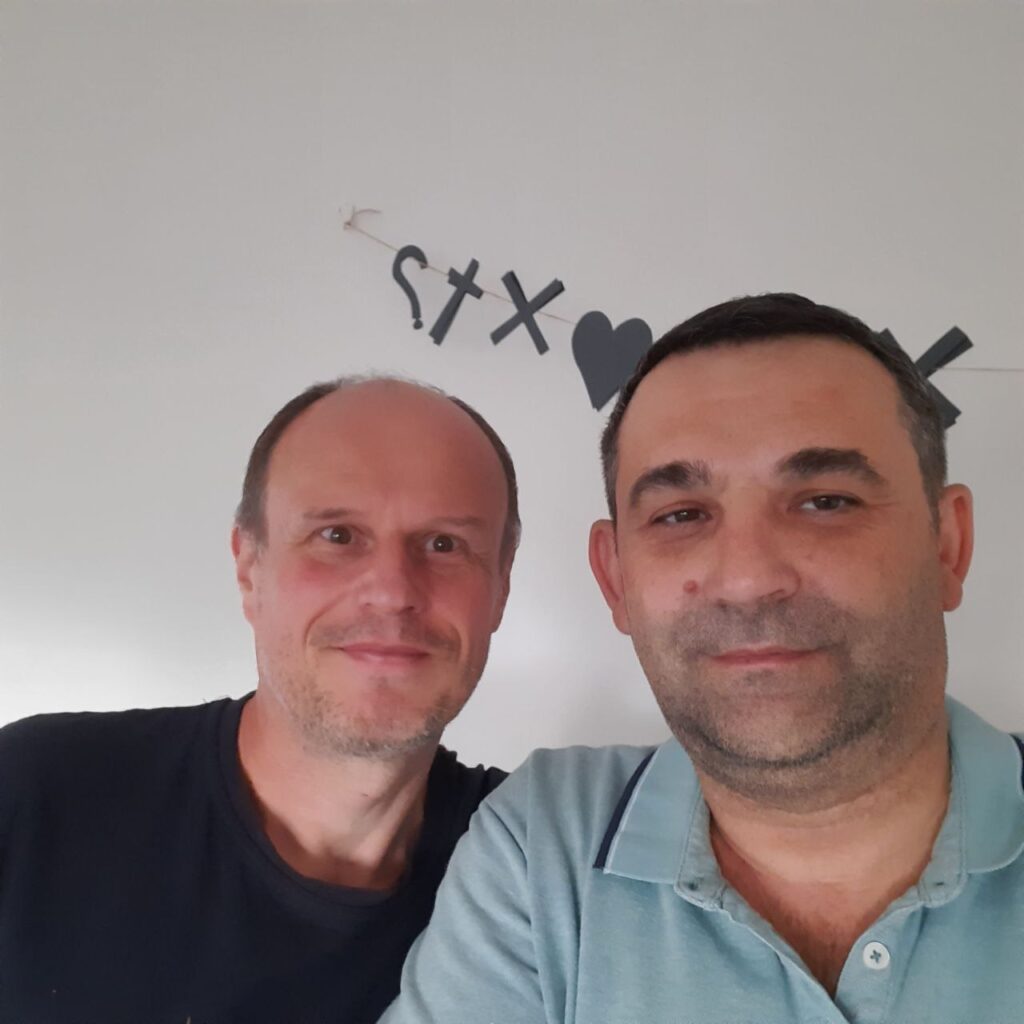
The International Youth Center in Veľký Slavkov near Poprad had an important role in providing the help. During March and April, the period of the largest wave of migration, the center practically stopped all its projects and concentrated almost entirely on the problems of refugees. More than 150 people passed through the center: they were taken by church transport from the border from Vyšné Nemecké (on the Ukrainian side – Uzhhorod and other crossing points). Here, people could come around within a few days and decide on their further route. Some went from here to Poland, some – to the Czech Republic, Germany and Denmark. A good number of people settled down all over Slovakia. The church center in Batezivtsi became a large settlement, like a camp, where several dozen immigrants live to this day.
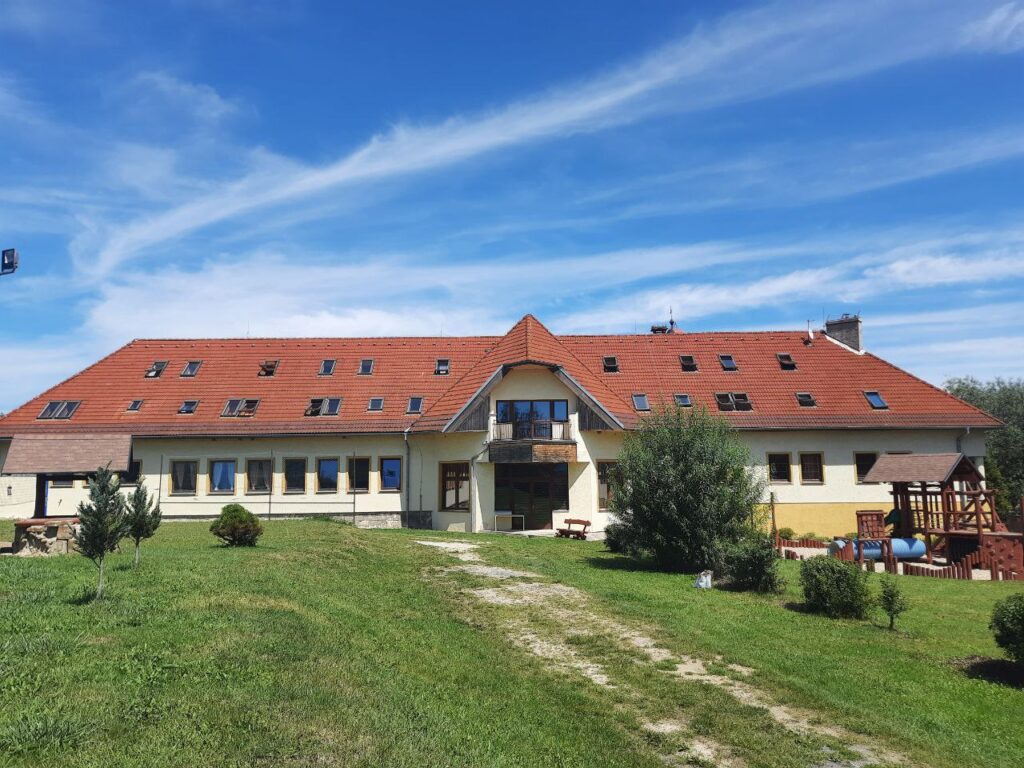
Here and in other places, members of Lutheran congregations, as well as those, who do not belong to the church, tried to support Ukrainian refugees as much as possible. Many brought food, clothes, shoes, and hygiene products, trying to share in people’s misery and suffering.
Active and coordinated work was made possible thanks to the centralization efforts of the office of the Eastern District of the Church in Prešov (Bishop Peter Mihoč) and the active participation of congregations that offered places for resettlement in their towns and villages. As early as February 26, on the third day of the war, the Church put up a tent on the border in Vyšné Nemecké, where the volunteers worked, helping confused people, as well as those, who lost hope and were full of fear and uncertainty – to accept help from the Evangelical Church. According to Pastor Vladimir Matiash, the director of the International Youth Center in Veľký Slavkov, he and many other people drove to the border and back daily, transporting people.
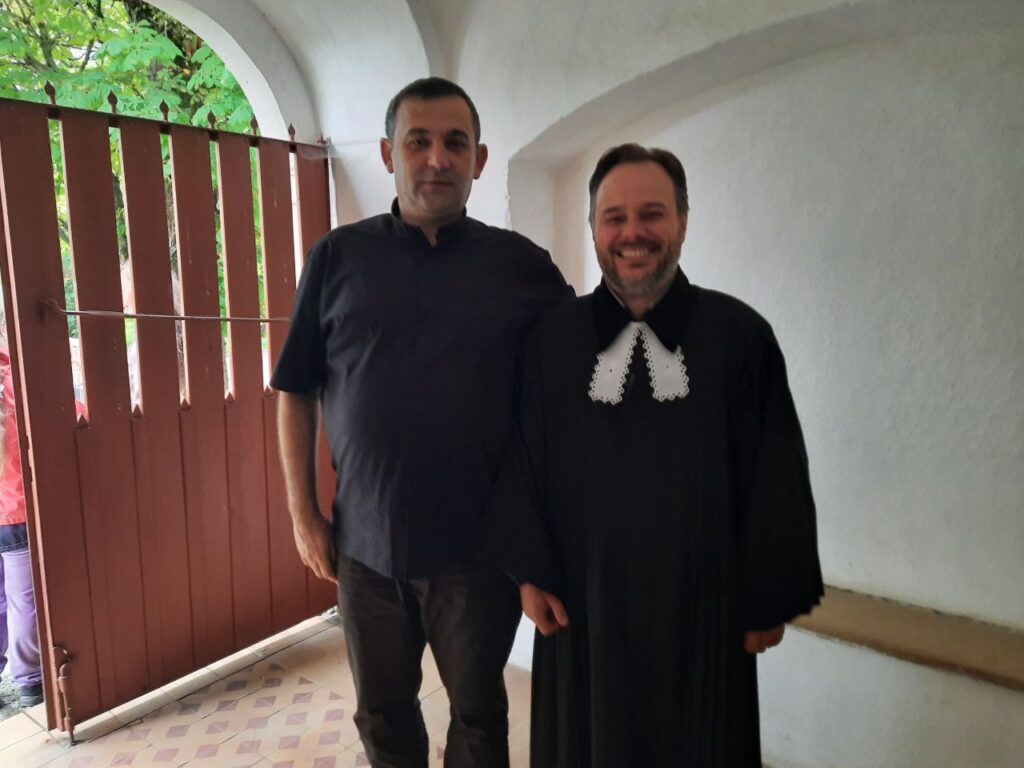
One of the first partners in this difficult ministry was an American organization Spiritual Orphans Network, headed by its director David Breidenbach. This organization concentrated a lot of efforts in its homeland to collect funds to help Ukraine, particularly those who were forced to flee their homes because of the war. Significant funds were sent to Slovakia to organize transportation, accommodation, and meals for the displaced persons. On February 25, the second day of the war, Pastor Scott Yount from the town of Bila Tserkva, also a SON missionary, and his wife Elena joined this important work in Slovakia. They became a bridge between Ukrainians, Slovaks, and Americans in helping people, who were fleeing from the war. Thanks to them, many people with disabilities from Bila Tserkva and the Kyiv region were able to make the difficult journey to Slovakia.
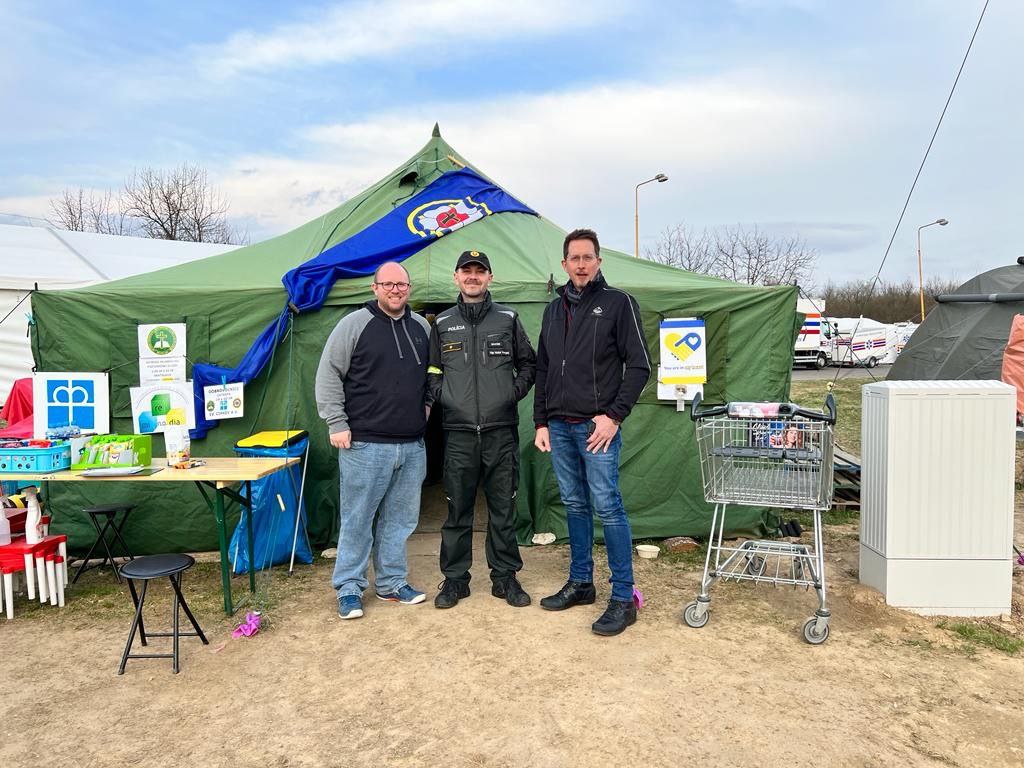
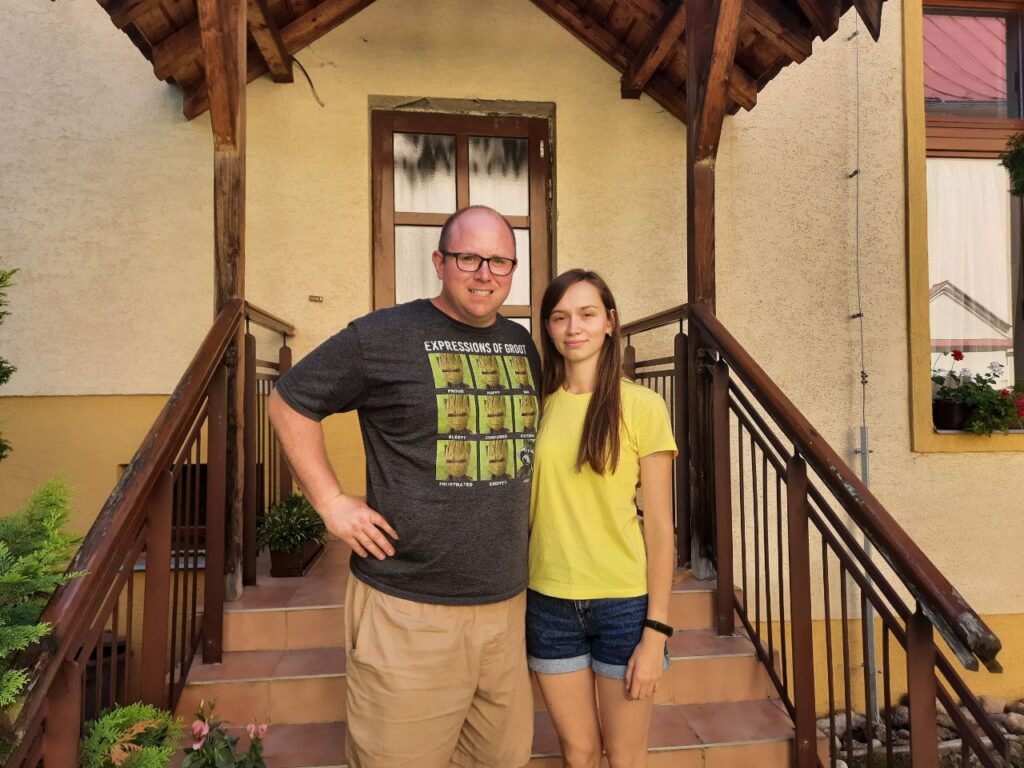
We saw a very interesting example of working with refugees in the city of Martin, in the center of Slovakia. Here, three non-profit Christian organizations connected with the local Lutheran church to create a special center to help Ukrainians. The city administration provided two rooms free of charge, some companies covered the salaries of employees, and the Evangelical Church created a relief fund. This is how the “Public Assistance Center for Displaced Persons” and the “Center for Humanitarian Aid” were founded. The former provides refugees with legal and psychological assistance, as well as food. Here you can sit in a cafe, leaving the children in the children’s area. In the Center, we met a woman from Odesa, whose family (men) remained there. She recognized us because she came to the Christmas fair, organized by our Church in Odesa. According to Tomasz Gulan, a co-founder of the Center, on average the organization provides aid at a cost of 2,000 euros per week. 900 refugees from Ukraine are registered in Martin and its surroundings.
In the Center of Humanitarian Aid, displaced persons can receive clothes and shoes, and children’s clothes. This rather crowded place receives those who bring and give aid, as well as those who need it.
A teacher at the Evangelical School, Lubos Froló, and a pastor of the Evangelical Community, Milan Kubik, told us about several projects for children and adults. About 70 children and teenagers from Ukraine became students in primary and secondary schools of the evangelical congregation. Children also took an active part in children’s language-, day- and field camps organized by the congregation. There is a similar trend in the congregation of Batizovce, where children, teenagers, and adults have the opportunity to participate in Christian camps on the regular basis, not only discovering Christian doctrines but also the Evangelical-Lutheran confession of the Christian faith.
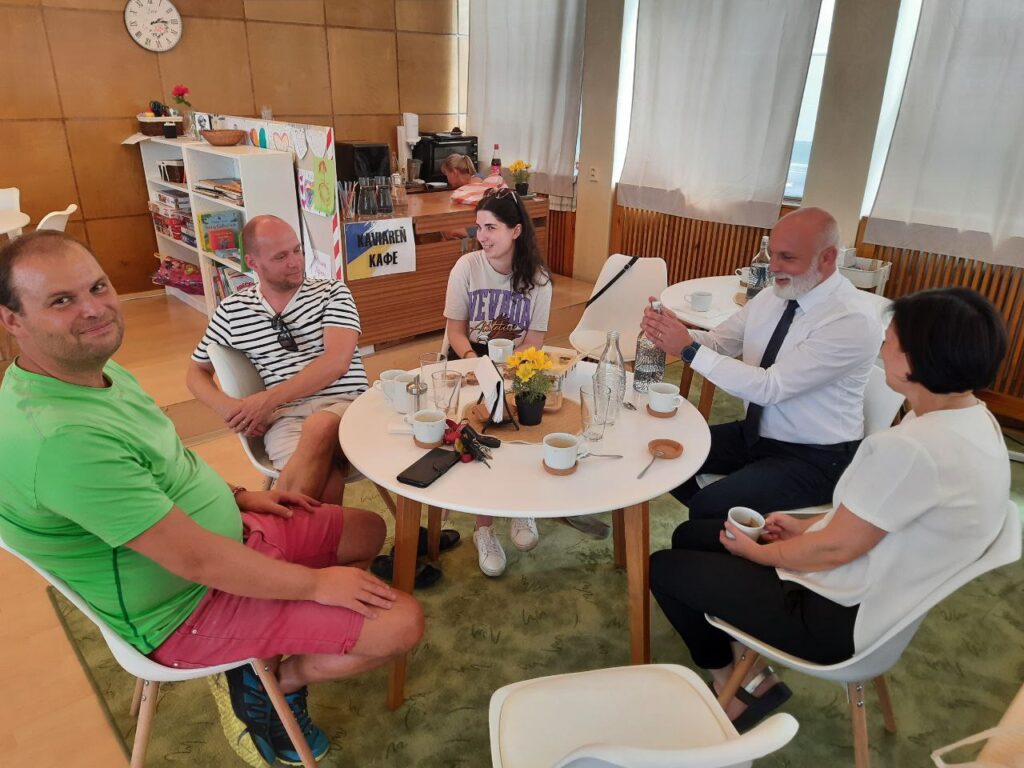
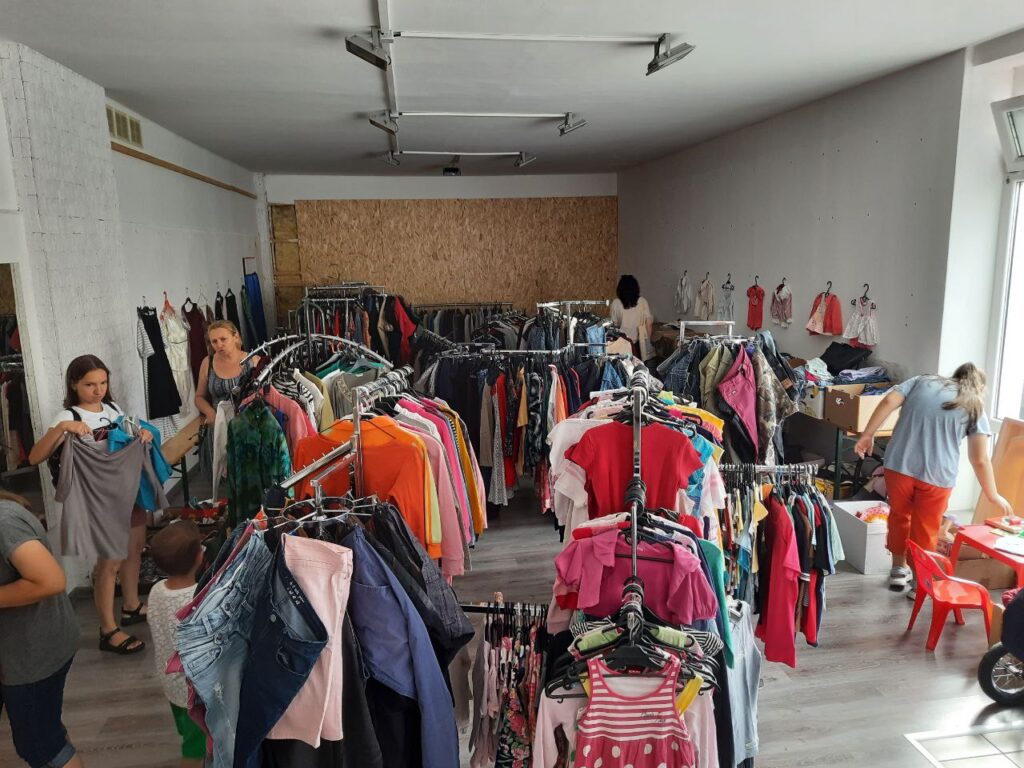
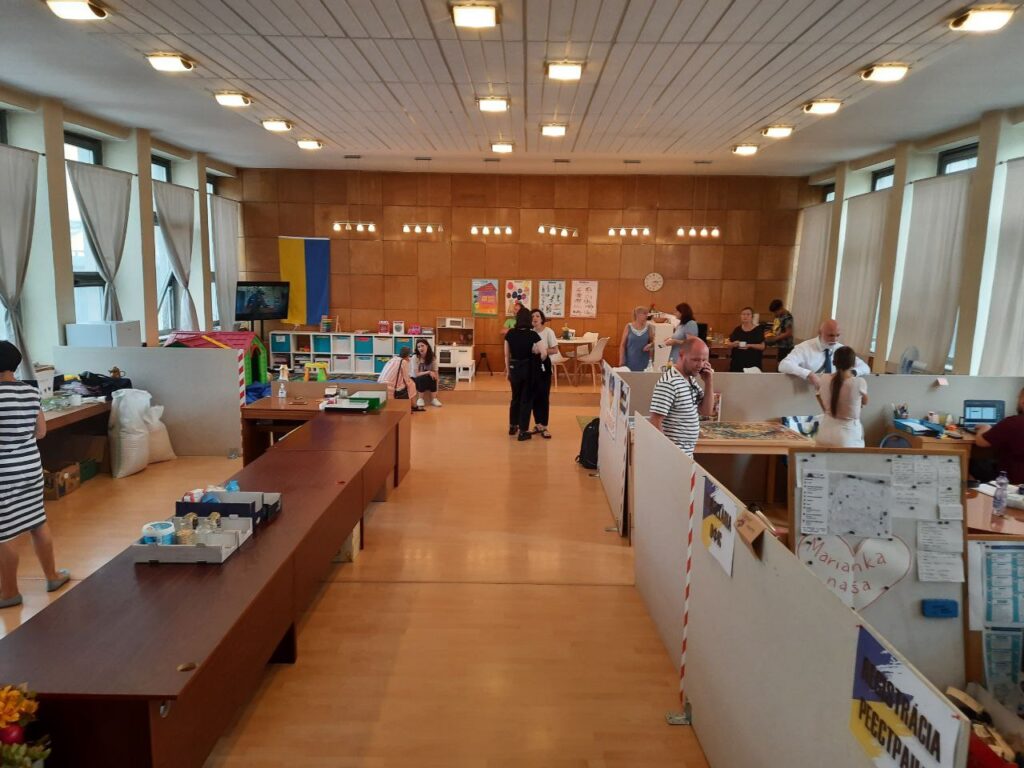
When I heard these stories from the pastors of these congregations, as well as Jan Hrobon, the bishop of the Western District of the Evangelical Church of the Augsburg Confession in Slovakia, I did not notice any signs of pride for the great ministry they were doing. It is only natural that a believer should not stand back when someone’s life needs saving. They simply fulfill the command of Jesus Christ to love their neighbor. But it is obvious to me that such love didn’t come from nowhere, but is a consequence of the love received from the Lord Jesus Christ. No one, who has experienced the fullness of God’s love can be indifferent and keep this love from others.
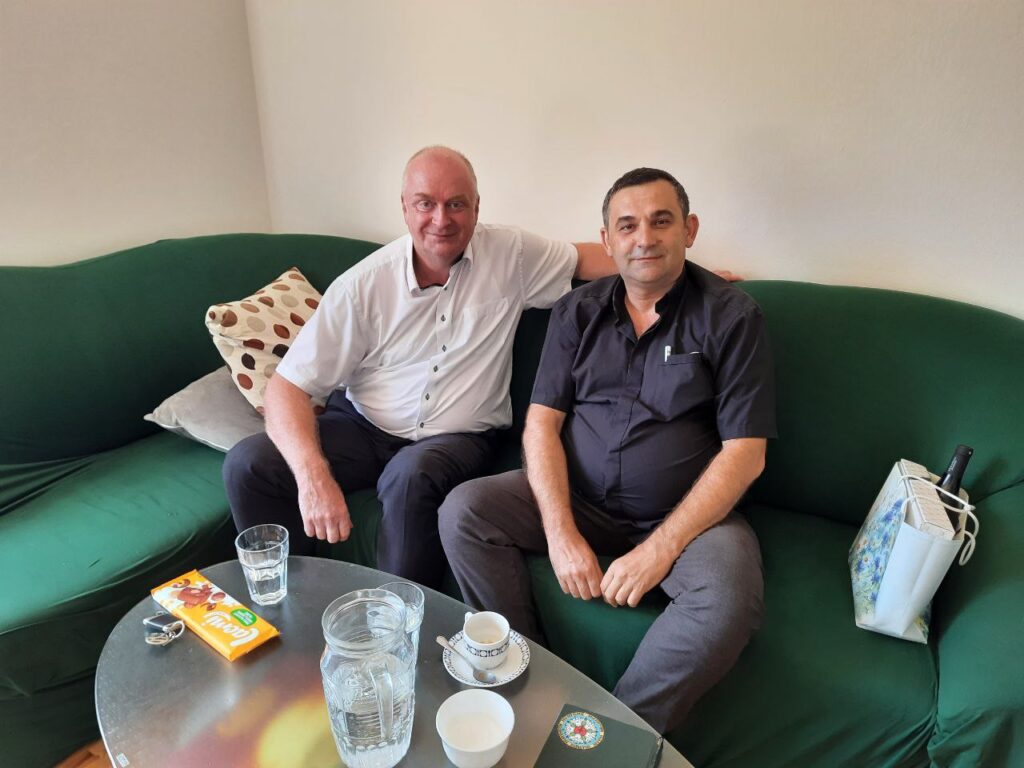
On behalf of the German Evangelical Lutheran Church of Ukraine, I sincerely thank the Church in Slovakia and the International Youth Center in Veľký Slavkov for the love and care, as well as the hospitality shown to our people and my family.
The Church has 370,000 parishioners in 327 communities. Communities are included in the seniorats (conferences), which, in turn, are included in two districts (eastern and western) headed by bishops. Two bishops and the General bishop make up the episcopal college. The legislative body of the Church is the Synod. The main Church unit is a religious congregation.
Alexander Gross
